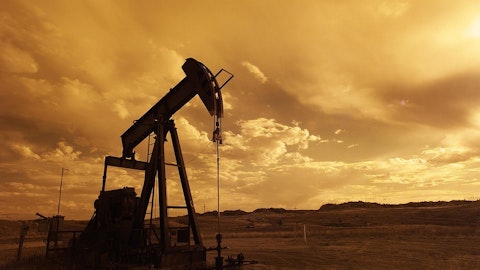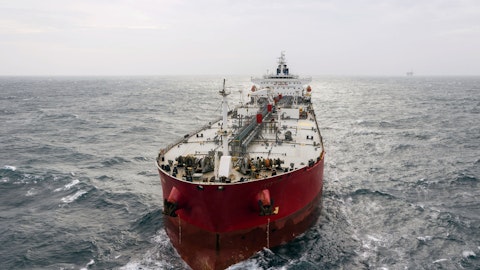Thijs Berkelder: Yes. Maybe one short follow-up. Let’s say, looking at trading within your shares by your Nordic region shareholders? Is there also any reason to investigate there whether there’s any reason to look at market manipulation or something like that from a legal standpoint?
Hugo De Stoop: Well, that’s not our job crude oil. I think that there is enough authorities and regulators and many people looking at that. And honestly, I only have 24 hours in a day. So I’m not even going to opine on it. I have so many better things to focus on.
Thijs Berkelder: Got you. That means that you are not having indications that such investigation is ongoing?
Hugo De Stoop: Sorry. In case you didn’t hear me, I don’t have any comment on that specific question.
Operator: Our next question comes from Amit Mehrotra from Deutsche Bank.
Chris Robertson: Thanks, everyone. This is Chris Robertson on for Amit. So given the structurally higher rate environment that we kind of expect here, given the regulatory uncertainty around future fuel technologies, et cetera, it seems like owners will have a pretty big incentive to hang on to older tonnage for as long as possible over the next few years. So this seems to me like it will create a real need for fleet renewal as we get further along towards 2030, not only in the tanker segment, but also other segments as well. So if you could think about what do you think the response by the shipbuilding industry might be to absorb a large number of orders as we get further along here, is there enough space at the yards to take on what looks to be a real renewal need?
Hugo De Stoop: That’s a very good question. I like it because you’re looking at the long term of this industry. And often, we are focused on the short term — as you know, there are different technologies, which fuels basically greenfields that are being investigated. Some people believe that LNG is already better and will be transforming to a green fuel when it can be produced synthetically. Some people believe that methanol is a very good view as long as you can obviously produce the hydrogen in a green way and capture the CO2. And then some people believe that ammonia will be better because there is no CO2 emission, but this technology does not exist today. It’s being worked on. And we have the promise from the shipyards and the engine manufacturer that it will be done before the end of the decade.
Obviously, starting with smaller engine and because of the size of our ships, we have the biggest engine, and we have been told that this would be developed at a later stage. On the shipyard themselves, I think that it’s true that there is some sort of a set capacity at the moment, which is spread between 3 countries. We can identify it relatively precisely. There are some efficiency, sorry, gains that can be done simply going from 2 shift to 3 shifts, which they used to do within the same space could increase marginally the capacities, but marginally in every yard means a few more ships. When you say everybody, in the shipping industry will have the same at the same time. I tend to slightly disagree if you allow me with you because we have seen that the guy carrying gas, but obviously, they are using gas as a fuel, and they will probably bet that green metal, sorry, green methane will be produced.





